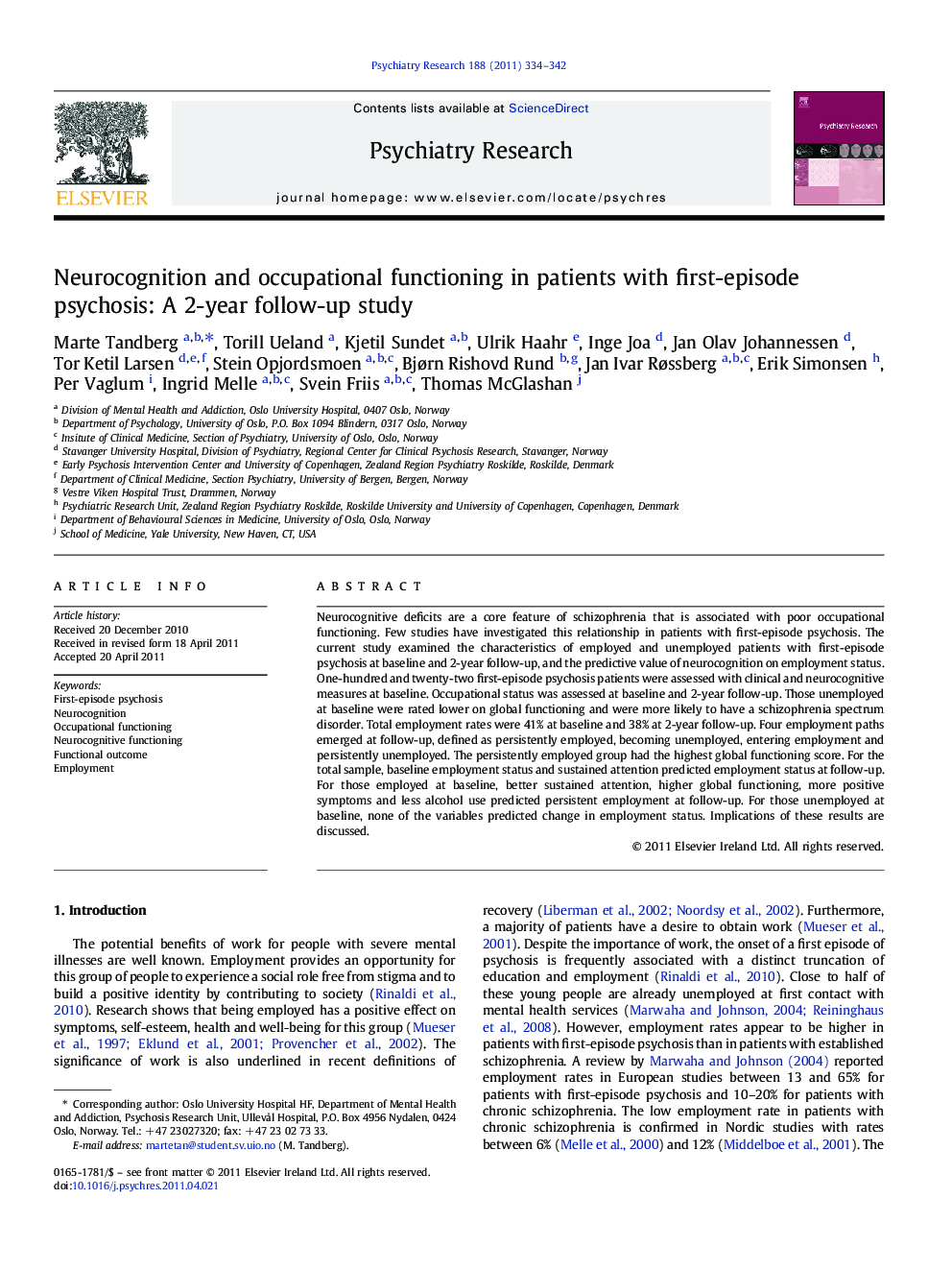| Article ID | Journal | Published Year | Pages | File Type |
|---|---|---|---|---|
| 10305052 | Psychiatry Research | 2011 | 9 Pages |
Abstract
Neurocognitive deficits are a core feature of schizophrenia that is associated with poor occupational functioning. Few studies have investigated this relationship in patients with first-episode psychosis. The current study examined the characteristics of employed and unemployed patients with first-episode psychosis at baseline and 2-year follow-up, and the predictive value of neurocognition on employment status. One-hundred and twenty-two first-episode psychosis patients were assessed with clinical and neurocognitive measures at baseline. Occupational status was assessed at baseline and 2-year follow-up. Those unemployed at baseline were rated lower on global functioning and were more likely to have a schizophrenia spectrum disorder. Total employment rates were 41% at baseline and 38% at 2-year follow-up. Four employment paths emerged at follow-up, defined as persistently employed, becoming unemployed, entering employment and persistently unemployed. The persistently employed group had the highest global functioning score. For the total sample, baseline employment status and sustained attention predicted employment status at follow-up. For those employed at baseline, better sustained attention, higher global functioning, more positive symptoms and less alcohol use predicted persistent employment at follow-up. For those unemployed at baseline, none of the variables predicted change in employment status. Implications of these results are discussed.
Keywords
Related Topics
Life Sciences
Neuroscience
Biological Psychiatry
Authors
Marte Tandberg, Torill Ueland, Kjetil Sundet, Ulrik Haahr, Inge Joa, Jan Olav Johannessen, Tor Ketil Larsen, Stein Opjordsmoen, Bjørn Rishovd Rund, Jan Ivar Røssberg, Erik Simonsen, Per Vaglum, Ingrid Melle, Svein Friis, Thomas McGlashan,
